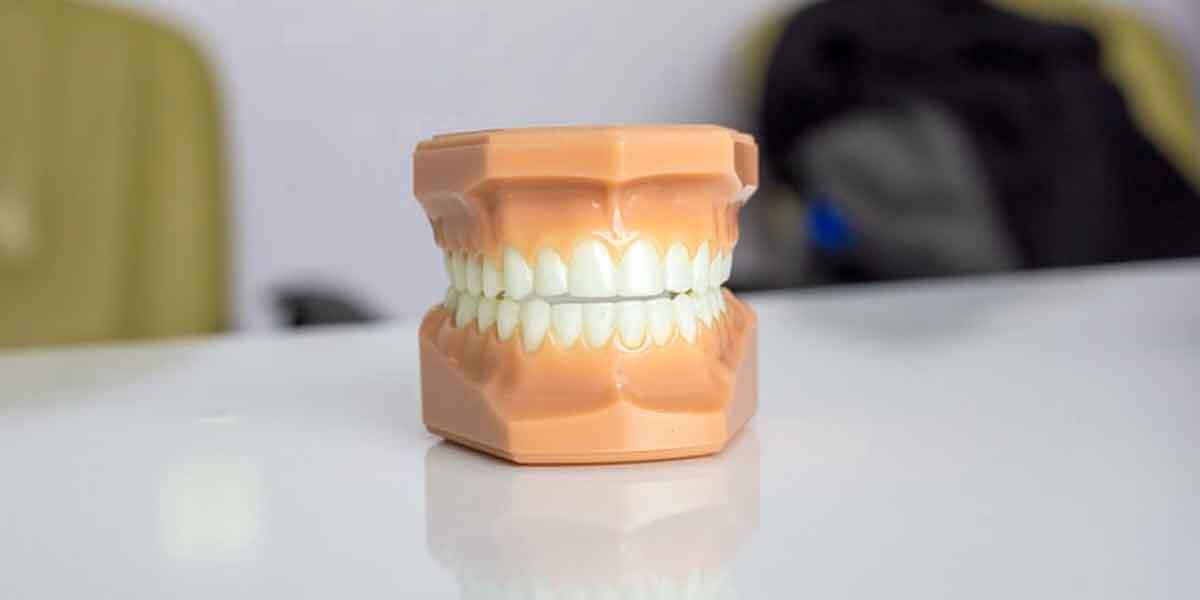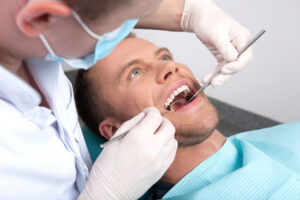Author: nearmedental
Full mouth restoration and reconstruction describe the process of restoring all the teeth in both the lower and the upper jaws at the same time. It is one of the most commonly performed dental treatments to enhance the overall oral structure of a person.
Restorative dentists (those who perform bridges, crowns, and veneers) and dental specialists such as periodontists (those who specialize in the gums), oral surgeons, orthodontists (those who specialize in tooth movements and positions), and endodontists (those who specialize in the tooth pulp) involves in full mouth reconstruction.
You may need a full-mouth restoration as a result of:
- Teeth that have been extracted owing to trauma or deterioration.
- Teeth that have shattered or injured.
- Teeth that have significantly worn down as a result of acid erosion (foods, beverages, acid reflux)
- Tooth grinding over time.
- Consistent complaints of jaw, muscular, and headache pain necessitate bite modifications (occlusion).
Required Procedures:
Only your dentist working on your full mouth restoration will be able to tell you what operations you’ll require. Other treatments may be available, so talk to your dentist about all the functions that might be needed for your case.
The majority of reconstructions require numerous phases and trips to the clinic. Treatment might take 12 to 18 months, depending on your circumstances. Depending on your requirements, the following processes are appropriate:
- Periodontal and prophylactic tooth cleaning
- Crown lengthening is a procedure that exposes healthy, sound tooth anatomy in preparation for crowns or bridges.
- The jaw got repositioned with orthognathic surgery.
- Gum tissue contouring to bring balance and harmony to your smile.
- Preparation (reduction) of your natural tooth structure to place crowns, bridges, or veneers.
- Temporary restorations get placed so that you can get used to your new teeth and the feel of the perfect bite alignment.
- Permanent restorations, ceramic supported by metal or a combination of both, get placed, such as crowns, veneers, inlays/Onlays, or bridges.
- To shift your teeth into the best position for reconstruction, you’ll need orthodontics (braces).
- To replace lost teeth and anchor bridge restorations, implants get placed and restored.
- Proposed implants and other restorations may require bone or soft tissue grafting to improve the stability of your teeth.
Who Is Ideal for Full Mouth Restoration?
The need for this surgery can be as severe as the need to transition to dentures, or it can be as minor as repairing teeth ground down while sleeping.
Those born with diseases like Ectodermal Dysplasia, Amelogenesis, and Dentinogenesis imperfecta will almost certainly require substantial full-mouth restoration during their lifetime, in addition to usual difficulties like broken or decayed teeth, missing teeth, and misaligned teeth.
Examinations Required Before Full Mouth Restoration
Here is a list of all the examinations to be performed before going for a full-mouth restoration:
- Teeth: The severity of the damage to your teeth will dictate the sort of therapy you receive. The dentist will examine any rotting, fractured, short or long teeth or unsteady teeth. Crowning or porcelain veneers therapy may be able to solve your condition.
- Gum tissues: Periodontal disease is another name for gum disease. Scaling and root planning are two common gum disease treatments. In more challenging situations, like uneven bone density or too much or too little gum tissue, you may need a full-mouth restoration.
- The temporomandibular joint connects the jaw to the skull’s temporal bones, located in front of the ears. This is the joint that lets you chew, speak, and do all other jaw actions. TMJ issues can cause tooth pain and damage. Jaw discomfort is one of the indications of TMJ disease, so see a dentist right away if you’re suffering from it.
- Esthetics refers to the shape, color, size, and proportion of your teeth about your face. From each side of your face, how do your teeth appear? A dentist must consider these aspects.
Other tests, including mouth and jaw x-rays, are essential to determine the degree of the damage and advise the dentists’ treatment team.
Final Words
Dental issues and disorders can develop as you get older, even if you weren’t born with them. Many things influence your mouth and teeth, from daily oral health behaviors and eating habits to jaw posture and bite. These issues can worsen with time, causing even more severe health issues. It’s never too late to get your smile back, and it’s never too early to start practicing excellent oral hygiene. This is why one must consider Full mouth restoration if they ever have bad oral health or any dental issues.



